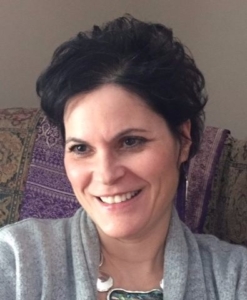Confident Selves for Confident Kids
Everyone has something good inside. Some hide it, some neglect it, but it is there. -Mother Teresa
I still think “self confidence” is one of the most important life skills. Self confidence means that I know my worth and innate goodness even if I’ve disappointed myself or others. And even if genetics, culture, personal experiences, and environment test me, I’ll focus on being good to my self because it matters.
As parents, we’re key to helping our children thrive. We can do lots to help a child feel reassured and confident despite setbacks. But first, we need to be aware and confident ourselves that we have what it takes to bring out the best in us. Then we can be that extra boost and positive force. We can be that incredible force that brings confidence when someone needs it.
How do we become more self aware and confident? We can start by checking the quality of our thoughts.* For example, is what I am thinking at this time good and helpful for my wellbeing? I need to check how my thoughts impact my feelings and body. The more I practice being aware of my thoughts, the more confidence I will build in myself. Eventually, I’ll be able to share that confidence with others.
As we recognize Body Confidence Day, let’s ask ourselves what we are doing to help our children feel better about themselves inside and out. I’m starting with this:
Ask myself if I am being a good role model for my child
How I feel about myself (strengths and weaknesses) impacts the mood and energy around me. Am I working on being good to myself and accepting my limitations? Do I push too hard when I could be more patient and accepting? Am I modeling the type of behavior I wish to see in my child? Am I hard on myself, making comments about my person and outward appearance that could set bad examples? I can be more self aware.
Be more aware of my intentions (Am I trying to force certain outcomes?)
As my child tries hard to do well and respond to various pressures, are my comments and actions supportive or adding to the stress? Am I trying to force a certain outcome to feel I have succeeded with my child? My intentions may not help outcomes. Maybe I need to question my intentions.
Have empathy for my child’s physical or mental struggles
Our children’s needs matter. Spending more time with them, listening to what they are sharing and showing interest and concern will help them. They need their space too. Sometimes it’s hard to know when to let them work out solutions themselves. They may engage with us even more if they sense that we are available and approachable. I want to show that I understand and care. I want to encourage and not discourage.
Life is full of surprises and challenges. We have what it takes to live it, especially when we open up to being aware.
*Source: Happiness Unlimited, Meditation Series, YouTube
Anne Bouchard is a proud advocate for the National Eating Disorders Association (NEDA) and lives with her family in Maryland. She’s a member of the Parents, Friends and Family Network (PFN) Steering Committee and continues to raise awareness for eating disorders (especially ARFID). She’s met Mother Teresa on several occasions and lives with her family in Maryland.





